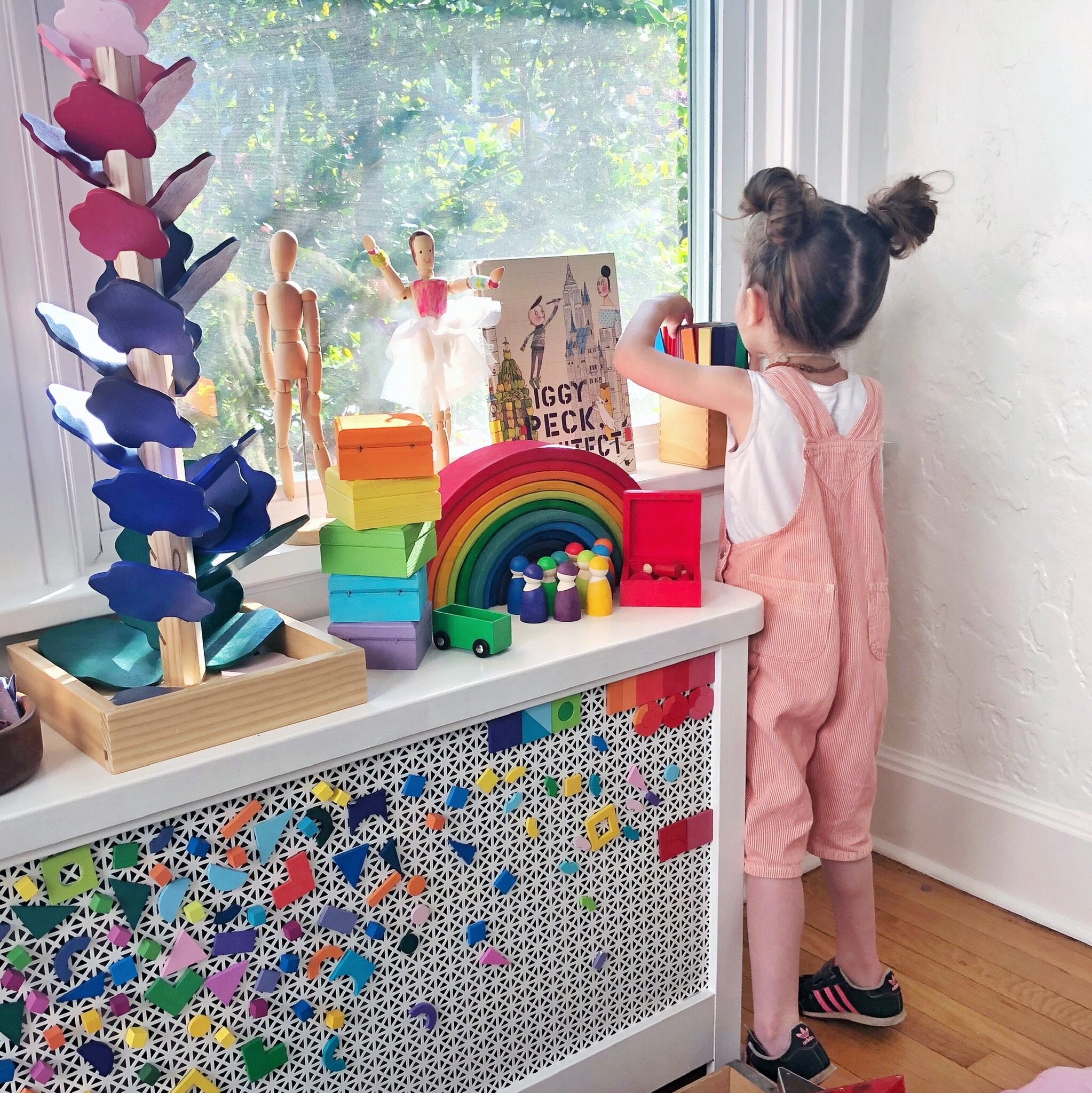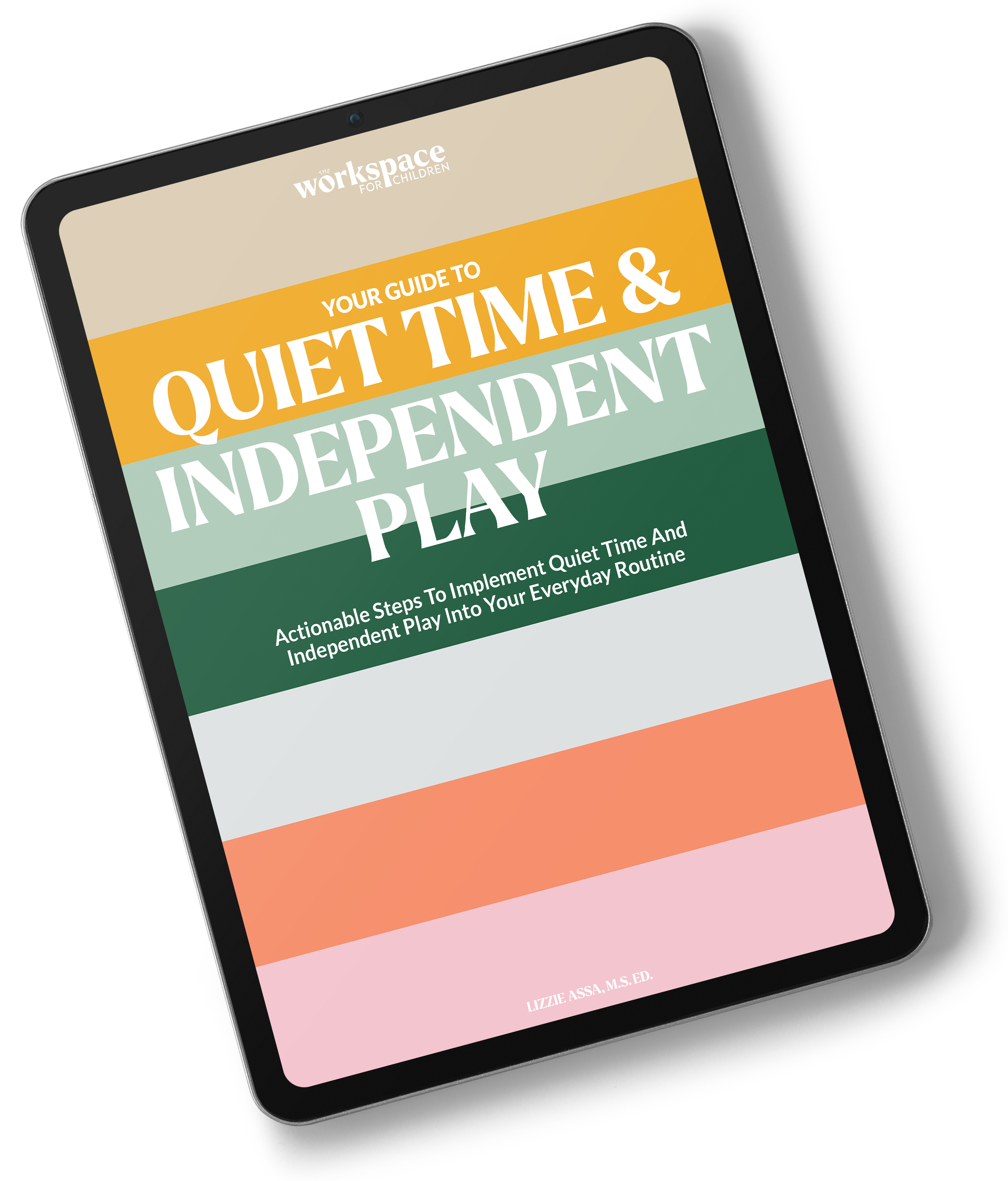How You Can Manage Your Child's Future Meltdowns Right Now
/Have you ever found yourself frustrated and yelling at your child mid-meltdown? Using bribes, threats, and anything else you can think of to try to get them to calm down? It usually doesn’t work, right?
What if I told you there was a way to manage your child’s meltdown before it even happens? Sound too good to be true? Here’s how to do it.
Give Your Child a Set of Tools
Picture this: You're in the supermarket and all of the sudden your child is on the ground kicking and screaming because they just have to have the Goldfish RIGHT NOW.
What can you do?
First, remember that tantrums and meltdowns are NORMAL. Even as adults, it’s okay (and necessary) to have an occasional release of pent-up emotions.
But how do you do this before you find yourself in a supermarket situation?
In the moment, stay calm, hold your ground and ride out the storm. It happens to the best of us.
Check out this post for helping your child cope with their frustration during a meltdown.
Now let’s talk about heading off tantrums at the pass…
Practice Ahead of Time
When your child starts having a meltdown, it’s normal to start calm and collected and then as things get worse, begin to (over)react and start having a meltdown of your own. It’s difficult to regulate your emotions while you are in the moment. I’ve been there!
Begin modeling and practicing small tantrum-worthy situations as a part of everyday life.
(See examples below)
The Frustration Meltdown
You just dropped a stack of clean folded laundry. How frustrating! That took you so long to complete. Let your child know how you are feeling.
“How frustrating! I wish that wouldn’t have happened.” Then, take a deep breath and say, “You know what? I’m deciding to refold the shirts now, and then I’ll refold the rest of the laundry after dinner.”
The Impatient Meltdown
“Argh! Waiting for my coffee is so hard. I want it RIGHT NOW! I’m going to count all of the red things I can find while I wait, will you help me?”
Asking your child for help will hook their attention!
The “I don’t want to do it” Meltdown
“I really wish I could stay in bed for longer this morning and read my new book. I’m feeling grumpy and don’t want to leave to go to the doctor. You know what? I’m going to write myself a reminder that tonight I want to go to bed early so that I have extra time to read before I get sleepy”.
Modeling how to manage these frustrating situations works because you are normalizing common feelings. By showing your child which action steps to take in these scenarios, you teach them how they can do it themself.
Later in the day, try reminiscing about the frustration you experienced earlier that day.
“Remember when I dropped the laundry this afternoon? …”
“Remember when it was hard for me to wait for my coffee? You really helped me stay calm by counting all of the red things with me.”
“Remember when I didn't want to get up this morning?...”
Teaching and practicing these everyday situations will play a HUGE part in helping your child access these skills when they need them most.
Be consistent and practice often! These coping skills take time to develop.
I hope you enjoyed this blog! If you want to keep up with more Workspace for Children content, follow along on Instagram by clicking HERE.
SUBSCRIBE TO MY NEWSLETTER
WANT TO SEE MORE BLOGS LIKE THIS ONE? GREAT! CHECK OUT THE POSTS BELOW!
CHECK OUT OUR EBOOKS!
THE PLAY PLAN
The Play Plan is an ebook containing play invitations that are easy to set up, inexpensive, and apply children of all ages. The 25 play prompts are divided into five categories and use items that you most likely already have at home. These play prompts consider children of all ages, all developmental stages, and all learning capabilities. Each prompt can be tailored to fit your unique child’s needs. Play is meant to be simple.
$28
QUIET TIME AND INDEPENDENT PLAY EBOOK
This downloadable ebook is your personal guide to Quiet Time and Independent Play. This ebook will teach you the basic steps to implementing a Quiet Time and Independent Play strategy that works. The guide teaches you my proven 5 step method for implementing a daily break without using screens. (Guide includes 5 bonus invitations to play.)
$27








Why Your Child's 'Difficult' Behavior Might Be Their Best Attempt to Communicate